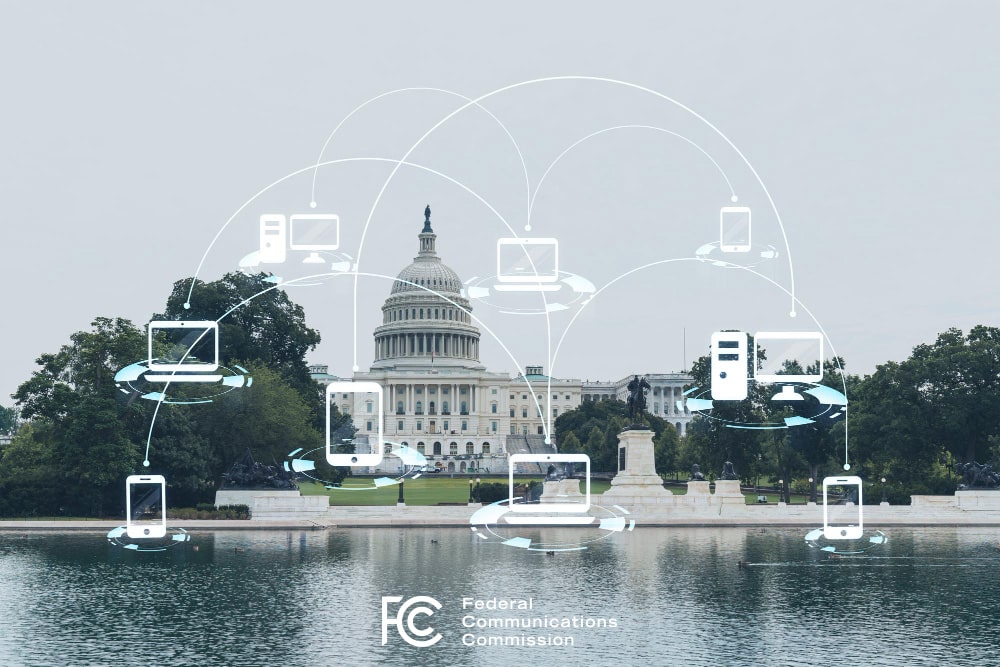Table of Contents
In a significant regulatory development poised to reshape organizations’ marketing strategies, the Federal Communications Commission (FCC) has introduced amendments to the Telephone Consumer Protection Act (TCPA), aiming to close what’s been dubbed the “lead generator loophole.” The FCC’s latest action, titled “FCC Issues New Consent Requirements for Certain Marketing Communications,” specifically targets the practice of lead generation, requiring businesses to obtain explicit consent for telemarketing and text message marketing communications. These new requirements mark a pivotal shift in regulatory oversight, impacting how businesses engage with consumers through marketing channels.

Affected Industries and Businesses
The new consent requirements mandated by the FCC will broadly impact various industries and businesses that engage in marketing communications. Sectors affected by new regulations will likely adapt marketing strategies and communication practices accordingly.
- Telecommunications and Internet Service Providers (ISPs): Telecommunications companies and ISPs often engage in marketing activities to promote their services, such as internet plans, mobile phone packages, and bundled offerings. New consent requirements will impact how businesses collect and manage customer consent, potentially altering acquisition and retention strategies.
- Retail and E-commerce: Retailers and e-commerce businesses rely heavily on targeted marketing to attract customers and drive sales. New consent requirements may prompt firms to review opt-in processes for email marketing, SMS campaigns, and personalized promotions. They may also need to ensure compliance with consent regulations when collecting customer data for marketing purposes.
- Financial Services and Banking: Financial institutions, including banks, credit card companies, and investment firms, utilize marketing communications to promote their products and services, such as credit cards, loans, and investment accounts. New consent requirements will affect how businesses obtain consent for marketing, potentially changing customer engagement and targeted advertising strategies.
- Healthcare and Pharmaceuticals: Healthcare providers, pharmaceutical companies, and medical device manufacturers often engage in marketing activities to reach patients and healthcare professionals. The new consent requirements may affect how these businesses obtain consent for promotional materials, patient education resources, and direct-to-consumer advertising. Compliance with privacy regulations, such as HIPAA, will also be a consideration.
- Technology and Software: Technology companies and providers use marketing communications to promote software products, cloud services, and subscription-based offerings. New consent requirements may affect how businesses collect and manage consent for email marketing, in-app notifications, and targeted advertising. Ensuring compliance with data protection regulations, such as GDPR and CCPA, will be essential.
Key Changes and Updates
The FCC’s new consent requirements significantly impact businesses and consumers alike. Here are the key updates:
- Expanded Scope: The new regulations broaden the scope of covered communications, including calls, texts, and emails, to encompass a wider range of marketing activities.
- Stricter Consent Standards: Businesses must now obtain explicit consumer consent before sending marketing communications, tightening requirements compared to previous regulations.
- Enhanced Transparency: The regulations emphasize transparency in communication practices, requiring businesses to clearly disclose the purpose of their communications and provide opt-out mechanisms.
- Consumer Protection: The changes prioritize consumer protection by empowering individuals to control their communication preferences and opt out of marketing communications more easily.
- Enforcement Mechanisms: The FCC introduces stricter enforcement mechanisms, including penalties for non-compliance, to ensure compliance with the new consent requirements.
- Impact on Businesses: Businesses must review and update their marketing practices to align with the new consent standards, potentially requiring changes to consent mechanisms and communication strategies.
- Adaptation Challenges: Adapting to the new regulations may pose challenges for businesses, particularly those in industries heavily reliant on marketing communications, such as telecommunications and e-commerce.
- Consumer Benefits: Consumers benefit from increased control over their communication preferences and greater transparency from businesses regarding marketing activities.
- Educational Efforts: Businesses may need to invest in educational efforts to inform consumers about the changes in consent requirements and ensure compliance with the new regulations.
- Long-Term Implications: The long-term implications of the new consent requirements remain to be seen, but they could impact consumer trust, business operations, and regulatory compliance strategies.
Explicit Consent vs. Implied Consent
To understand how FCC issues new consent requirements for certain marketing communications, we need to know this.
Explicit consent: Individuals must actively agree to marketing, e.g., checking a website box or signing a consent form. For example, a customer opting in to receive promotional emails by providing their email address demonstrates explicit consent.
Implied consent, on the other hand, is assumed based on existing relationships or prior interactions with the individual. Example: Customer purchases imply consent for related marketing, like product updates or offers, without explicit agreement.
Businesses should prioritize explicit consent, especially for electronic communications like emails and text messages, to ensure compliance. Implement clear opt-in mechanisms and offer easy opt-out options to ensure compliance with explicit consent requirements.
For implied consent scenarios, businesses should carefully assess whether the relationship or interaction with the individual justifies assuming consent for marketing communications. They should also provide clear information about the nature and frequency of communications and offer opt-out options to respect individual preferences and regulatory requirements.
Amendments Passed
FCC Issues New Consent Requirements for Certain Marketing Communications. This means amendments prioritize consumer protection in telemarketing, effective December 13, 2023. It provides a concise summary of the regulatory changes and directs the reader to where they can find more information.
Key aspects of this revised regulation include
- Individualized Consent for Each “Seller”: Organizations are now mandated to procure consent for each distinct “seller,” referring to the ultimate marketer rather than the lead generator. Comparison shopping sites must have separate checkboxes for each entity seeking consent for telemarketing or text message marketing. Any attempt to consolidate consent for multiple entities, whether through hyperlinks or within the consent language, will be deemed insufficient. Pre-existing consents that fail to align with these new stipulations upon the amendments’ enforcement will not be grandfathered. Notably, no explicit exception has been granted for affiliated entities.
- Content Alignment with Consent Source: The content of telemarketing calls and text messages must now exhibit a “logical and topical” connection with the initial interaction prompting the consent. FCC doesn’t define “logical and topical”; example: Consent on a car loan site doesn’t allow unrelated marketing calls.” Businesses must ensure telemarketing content aligns with consent source, likely leading to future litigation over compliance.
- Limitation of the New Rule: These revised consent requirements will exclusively apply when marketers utilize an “autodialer” or employ an artificial or prerecorded voice. However, the definition of an “autodialer” remains contentious and has been the subject of considerable legal debate. Courts differ on autodialer definition; some include any equipment selecting numbers from lists, leading to uncertainty.
- The new regulation takes effect in stages; consent requirement revisions begin in December 2024.

Implications for Your Business
- Businesses must prioritize clear consent strategies for telemarketing, requiring thorough reevaluation of consent gathering and utilization methods. It is imperative to maintain meticulous records of consent, including the language employed and the method and source of acquisition.
- Content Alignment: For organizations offering a diverse range of products or services, it’s essential to consider implementing processes that ensure future telemarketing and text message marketing content remains aligned with the transaction that prompted the consent.
- Amendments to consent raise questions about the validity of existing consents under the TCPA, prompting lead-generation process reviews. Companies must assess their current consents to identify those that may no longer comply with the new regulations. Additionally, reaching out to lead generation partners is crucial to ascertain their adjustment plans to ensure compliance with the new rule.






